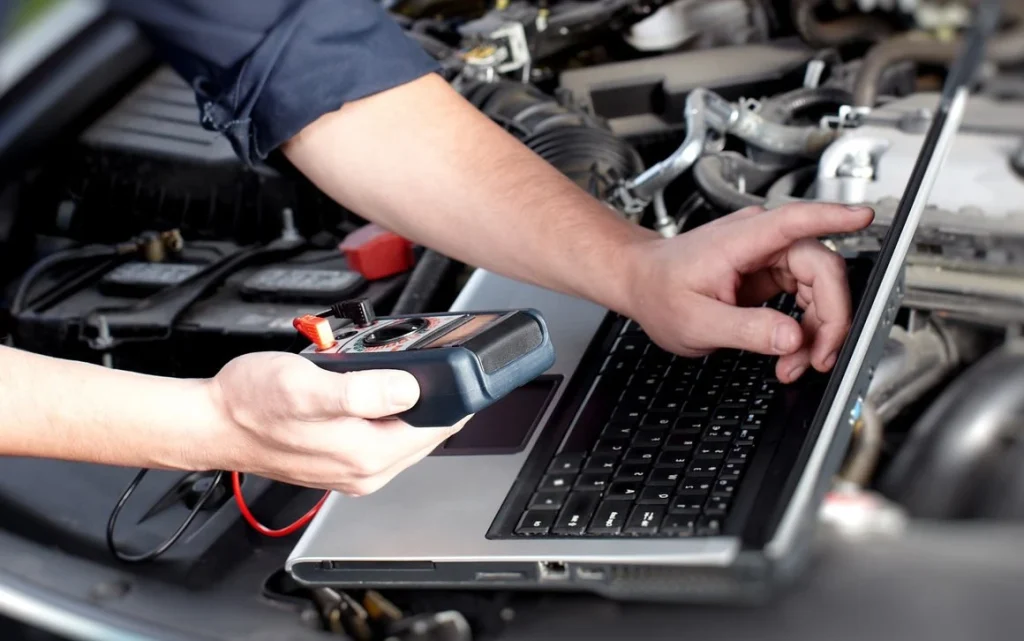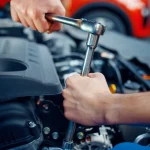The Essential Guide to Auto Diagnostics: Keep Your Vehicle in Top Shape
Maintaining a vehicle in today’s fast-paced world requires more than just regular oil changes and tire rotations. Auto diagnostics has become a cornerstone of modern vehicle care, offering a proactive approach to identifying and resolving issues before they escalate. Whether you drive a compact car, a family SUV, or a heavy-duty truck, understanding the importance of auto diagnostics can save you time, money, and stress. This guide explores what auto diagnostics entails, its benefits, common signs that indicate a need for it, and why professional service is key to keeping your vehicle running smoothly.
What Is Auto Diagnostics?
Auto diagnostics is the process of using specialized tools and techniques to assess a vehicle’s health. Modern cars are equipped with onboard computers and sensors that monitor everything from engine performance to emission levels. Diagnostic equipment, such as an OBD-II (On-Board Diagnostics II) scanner, connects to your vehicle to read error codes and provide detailed insights into potential problems. These codes can point to issues with the engine, transmission, brakes, or even the electrical system, allowing technicians to pinpoint the root cause efficiently.
This technology has evolved significantly, moving beyond simple check-engine lights to offer real-time data on a vehicle’s performance. For drivers, this means fewer guesswork repairs and a clearer picture of what’s happening under the hood.
Why Auto Diagnostics Is Crucial
Regular auto diagnostics offers numerous benefits that go beyond basic maintenance:
- Early Problem Detection: Catching issues early, like a failing sensor or a misfiring cylinder, prevents minor problems from turning into major repairs.
- Improved Safety: Faulty brakes, worn suspension components, or exhaust issues can compromise road safety. Diagnostics ensures these are addressed promptly.
- Enhanced Fuel Efficiency: Problems like a clogged air filter or malfunctioning fuel injector can reduce mileage. Diagnostics helps optimize performance and save on fuel costs.
- Extended Vehicle Lifespan: Addressing wear and tear before it causes significant damage keeps your car running longer.
- Warranty Compliance: Many manufacturers require diagnostic checks to maintain warranty validity, making it a smart preventive measure.
In regions with challenging driving conditions, such as extreme temperatures or rough roads, auto diagnostics becomes even more essential to maintain reliability.
Common Signs Your Vehicle Needs a Diagnostic Check
Even with regular maintenance, certain symptoms suggest it’s time for an auto diagnostic test:
- Check Engine Light: This is the most obvious indicator, signaling anything from a loose gas cap to a serious engine issue.
- Unusual Noises: Knocking, rattling, or hissing sounds can point to problems with the engine, exhaust, or belts.
- Poor Performance: Sluggish acceleration, stalling, or rough idling often indicate underlying issues.
- Decreased Fuel Economy: A sudden drop in mileage could signal a problem with the fuel system or oxygen sensors.
- Warning Lights: Lights for the ABS, traction control, or battery can indicate specific system failures.
- Strange Smells: Burning odors or exhaust fumes inside the cabin may suggest electrical or exhaust issues.
If you notice any of these signs, a professional diagnostic check can provide clarity and prevent further damage.
The Auto Diagnostic Process
A typical diagnostic service follows a structured approach to ensure thoroughness:
- Initial Assessment: A technician reviews the vehicle’s symptoms and history with the owner.
- Connection to Diagnostic Tool: An OBD-II scanner is plugged into the vehicle’s port, usually located under the dashboard, to read error codes.
- Code Interpretation: The technician analyzes the codes to identify affected systems, such as the engine, transmission, or emissions.
- Visual Inspection: Physical checks of components like belts, hoses, and fluids complement the electronic data.
- Testing and Confirmation: Additional tests, such as compression tests or sensor checks, may be conducted to confirm findings.
- Report and Recommendations: The technician provides a detailed report with repair options and prioritizes urgent fixes.
This process is quick, often taking less than an hour, and provides a roadmap for necessary repairs or maintenance.
Benefits of Professional Auto Diagnostics
While DIY diagnostic tools are available, professional services offer distinct advantages:
- Expert Analysis: Certified technicians interpret complex data and identify issues beyond the scope of basic scanners.
- Advanced Equipment: Professional shops use sophisticated tools that provide deeper insights into your vehicle’s systems.
- Comprehensive Service: Diagnostics are often paired with multi-point inspections, catching additional problems like worn brake pads or low coolant levels.
- Peace of Mind: Knowing your vehicle is thoroughly checked by experts ensures reliability and safety.
For drivers in areas with diverse road conditions, professional diagnostics at a trusted auto service center can make all the difference in maintaining vehicle health.
How Often Should You Get an Auto Diagnostic Check?
There’s no one-size-fits-all answer, but here are some general guidelines:
- Routine Maintenance: Include a diagnostic check with every major service, such as oil changes or tire rotations (every 5,000–10,000 kilometers).
- Annually: A full diagnostic scan at least once a year helps catch issues early.
- As Needed: Perform diagnostics immediately if warning lights appear or performance issues arise.
- Pre-Purchase or Pre-Travel: Before buying a used car or embarking on a long trip, a diagnostic check ensures the vehicle is roadworthy.
Regular diagnostics, especially in demanding environments, can prevent unexpected breakdowns and keep your car in optimal condition.
Common Diagnostic Issues and Solutions
Some frequent problems uncovered by diagnostics include:
- Faulty Oxygen Sensors: These affect fuel mixture and emissions, often requiring replacement.
- Ignition Coil Failure: Causes misfires and poor acceleration, typically fixed by replacing the coil.
- Clogged Catalytic Converter: Reduces exhaust flow and efficiency, often needing professional repair or replacement.
- Worn Spark Plugs: Leads to rough idling and reduced power, easily addressed with new plugs.
- Battery or Alternator Issues: Can cause starting problems, diagnosed and resolved with testing and replacement.
A professional auto service can address these issues with precision, using the diagnostic data to guide repairs.
Trust the Experts for Your Auto Diagnostics
Auto diagnostics is a powerful tool in modern vehicle care, bridging the gap between routine maintenance and complex repairs. By staying proactive with regular checks, you can ensure your vehicle remains safe, efficient, and reliable for years to come. Whether you’re dealing with a warning light or simply want peace of mind, a professional auto service center is your best ally. Schedule a diagnostic check today and drive with confidence, knowing your car is in expert hands.




